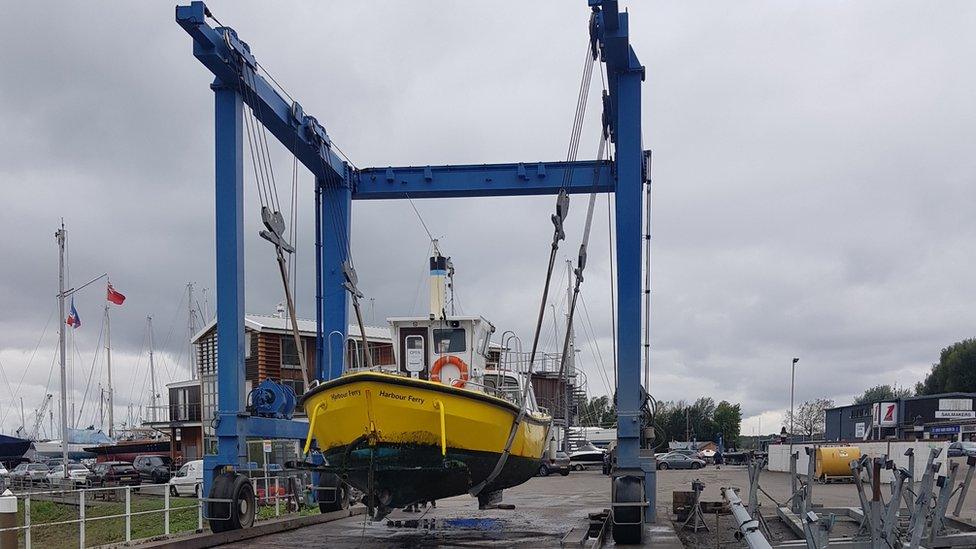The people keeping our historic foot ferries afloat
- Published
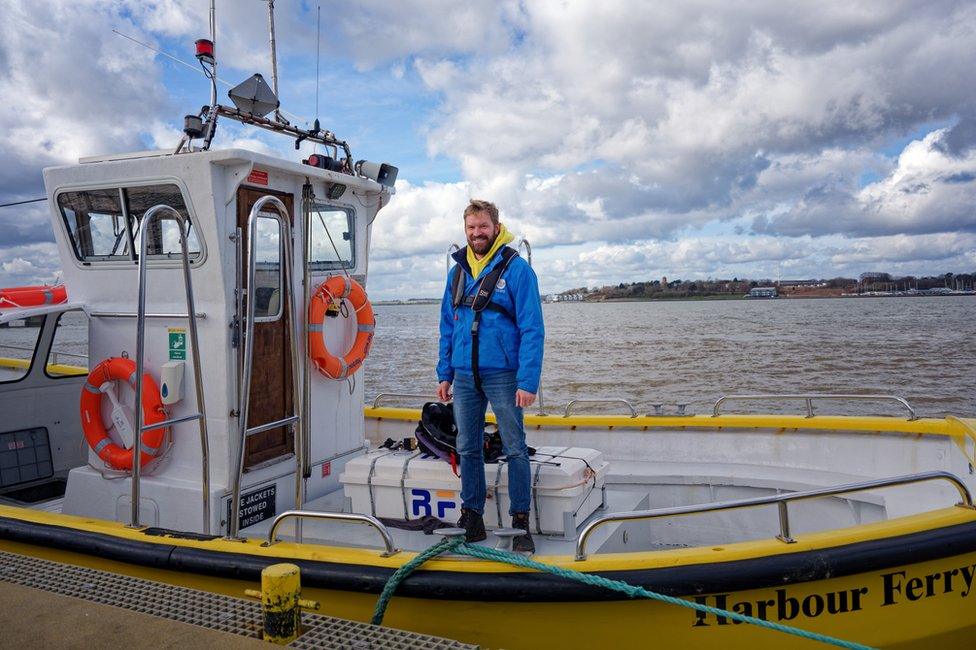
Christian Zemann says he "naively" took on a foot ferry operation in Harwich
Foot ferries were once a vital cog in the UK's transport network, but those keeping these ancient river crossings going tell of an aging workforce, rising costs and an uncertain future.
A few weeks ago, the operators of the Horning Foot Ferry in Norfolk announced the service was ending because of a shortage of volunteers and a drop in the number of people using it.
For those in the ferry world, the demise of the centuries-old crossing of the River Bure was sad but not surprising.
It was, they say, emblematic of the kind of issue they face each and every day.
Department for Transport figures show a decline in river ferries usage, external - down more than 10% from 20.1m passenger journeys in 2012 to 17.4m in 2022.
The nation's foot ferries come in all shapes and sizes, from small rowing boats to large motor-powered vessels carrying dozens of passengers at a time.
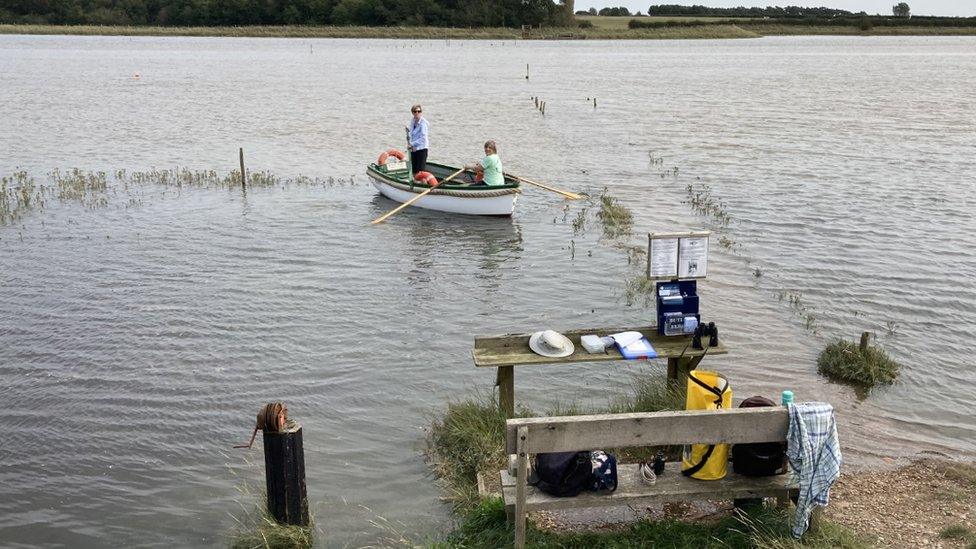
Butley ferryman Teresa Aslett approaches the river bank during an exceptionally high spring tide
Roy Truman, who counts the captain of the Titanic Edward Smith as a relation, is head ferryman of the Butley Foot Ferry.
The 4m (12ft) rowing boat can take four passengers - or two with bicycles - across the creek between Butley and Orford in Suffolk.
He has not yet, thankfully, sunk his vessel.
A retired teacher, Mr Truman, 70, says the loss of any foot ferry is tantamount to "losing a little bit of history".
"On a ferry like ours, a little bit of the coastline would effectively disappear from people's itinerary," he says.
"Orford is on the coast path but if our ferry wasn't there, they would have an extra eight miles to walk."
The ferry is dependent on a team of volunteer ferrymen from April to October
"At one end of the scale we have 80-year-olds who are competent boatmen, know the techniques and how to deal with the river because they have done it for years," Mr Truman says.
"We also have two extremely competent lady ferrymen, one of whom is about 5ft (1.52m) tall and weighs about 6st (38kg) and she can row the boat and manage the customers as well as anybody."
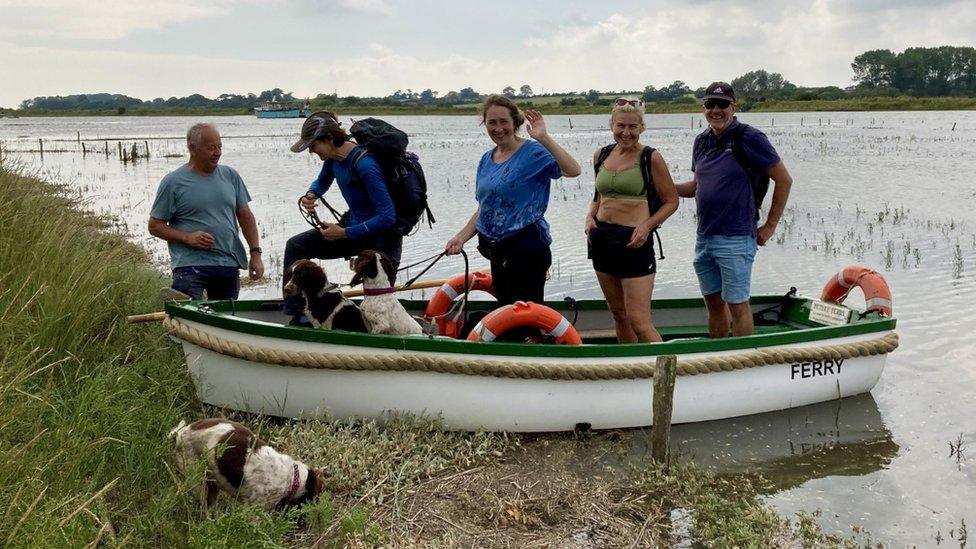
The rowing boat ferry can take four passengers or two with bicycles across the creek between Butley and Orford in Suffolk. Dogs travel for free
Attracting fresh blood can be a struggle, says Mr Truman, and appeals for new joiners can be hit and miss with some dropping out despite showing early interest in joining the team.
Patrons are either walkers, birdwatchers or cyclists, says Mr Truman.
"They are usually travelling the Suffolk Coast Path or on a circular route. If they are on the coast path and the ferry was not there, they would miss out on Orford and quite a huge area of coastline," he says.
While some might see the ferry as a small rowing boat with oars made of pine, Mr Truman sees it as a vital part of the area's heritage.
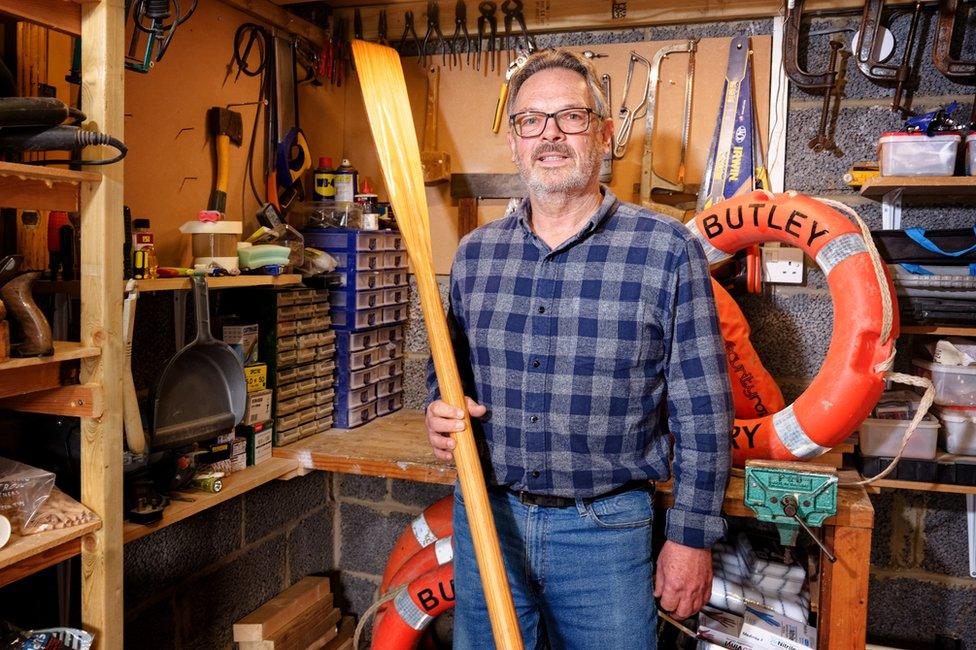
Roy Truman sees the ferry service as a vital part of the area's heritage
"The ferry has been on the site it is now since 1383," he says.
"The ferry then was operated by ferrymen from Butley Priory and it was used for getting the friars across the river to the churches for services and to carry livestock and crops to the market, rather than having to do an extra eight miles to go around.
"It was a commercial thing at that time - they certainly were not there for people out for a nice Sunday walk.
"It was a necessity as Orford at that time was a very important port and to carry anything by any distance you had to go by river."
Just over 30 miles (48km) north of Butley, the Reedham Chain Ferry in Norfolk carries passengers across the River Yare.

Teacher Mathew Hunt crosses the River Yare using the Reedham Chain Ferry each day to get to work
Far from being a historical oddity or leisure service, the ferry remains a vital part of many people's daily lives.
Among them is teacher Mathew Hunt, who travels each day between his home in Halesworth, Suffolk, and Reedham Primary School.
Mr Hunt said the temporary closure of the ferry earlier this year was a "nightmare" that added up to an hour to his normal journey time.
"The ferry crossing is one of the highlights of my day," the 31-year-old says.
"It is really quite magical in the mornings and I was relieved when it was back up and running again.
"It is a cool way to get work."
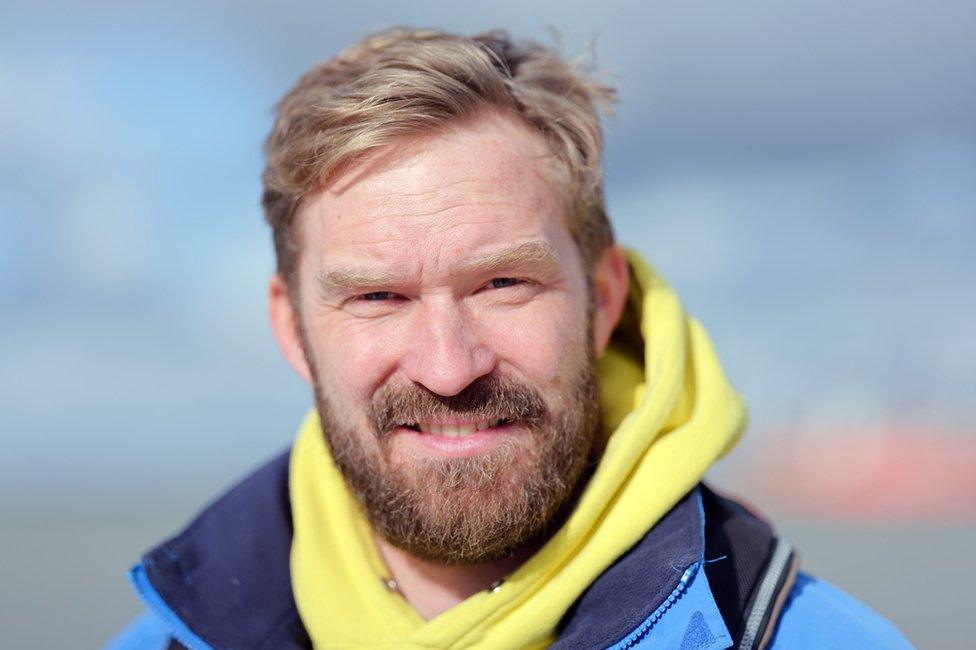
Mr Zemann says he knew nothing about the local area when he took over the Harwich ferry
About 15 years ago, Austrian water sports enthusiast Christian Zemann was on a beach with his wife in Suffolk and spotted a foot ferry going back and forth.
At first he thought the boat's skipper was just some kind-hearted soul doing his patrons a "favour".
"When I looked at the prices I said to my wife, 'Actually, I think he's making a living'," says Mr Zeeman.
Five years later he and his wife Lucy moved to the UK and bought the Harwich Harbour Ferry, saving it from closure.
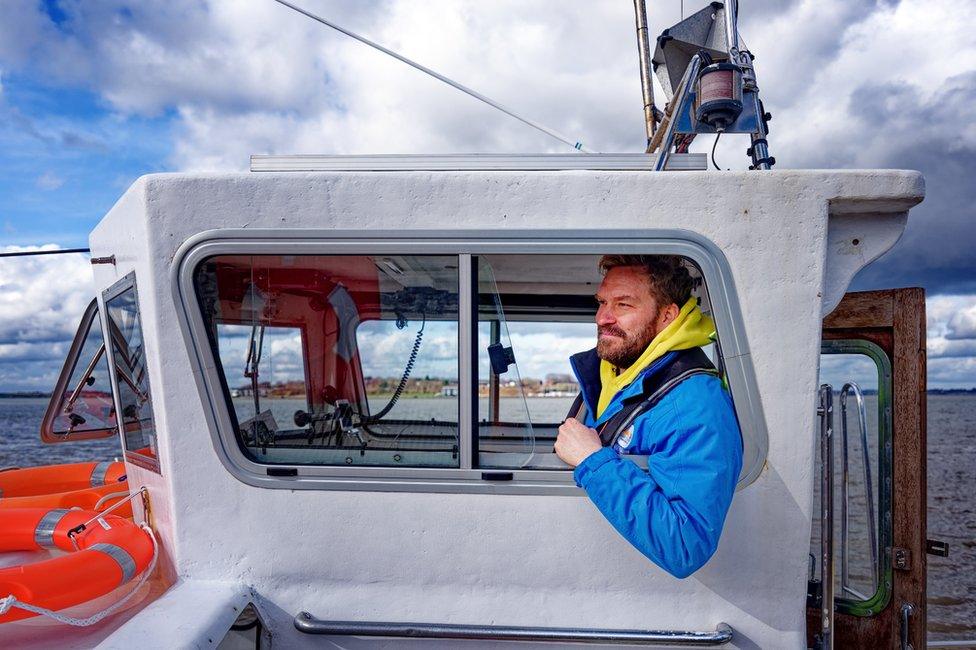
Mr Zemann says although he loves being on the water, his costs have spiralled in recent years
"Others said this would never work and would never be profitable but I was desperate to get back on the water so I naively just went for it," says Mr Zemann.
"My advantage was that I didn't know anything about the local area."
In numerical terms, the ferry - which was once Lifeboat 24 from the ocean liner SS Canberra - has been hugely successful. One-way passenger numbers have grown from 12,000 a season to nearly 50,000 in eight years.
"I love taking people across the water and keeping everything connected," he says.
But his happiness has been marred by the spiralling costs of the ferry, which connects Harwich with Shotley and Felixstowe.
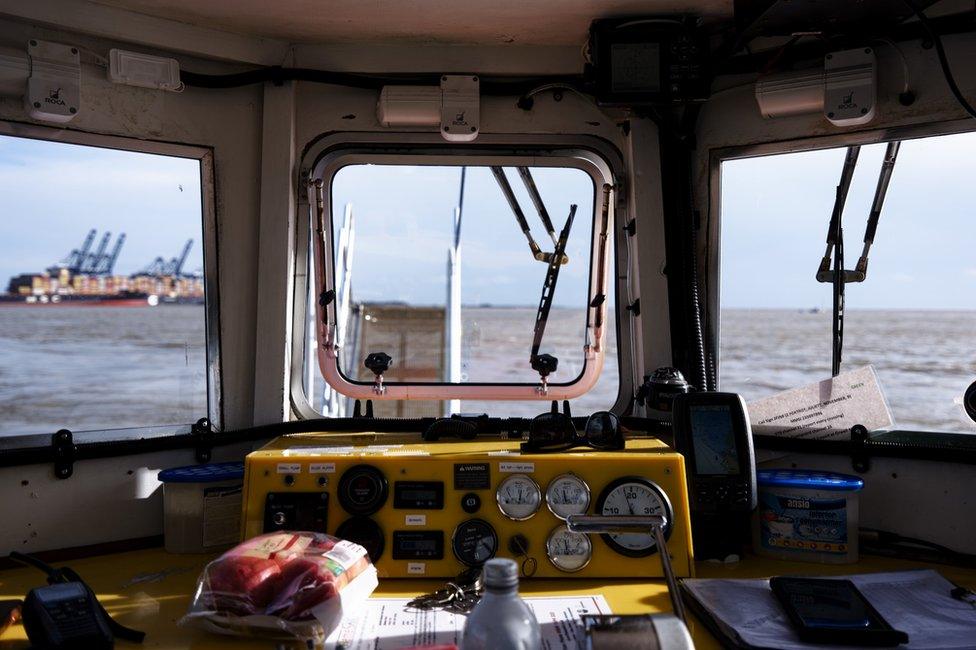
Because his vessel can carry more than 12 passengers, he is regulated by the Maritime and Coastguard Agency and has to pay for annual inspections and associated costs
Eight years ago his insurance bill was a couple of thousand pounds. This year it is more than £10,000.
"Fuel costs have risen 400% in the last eight years," says Mr Zemann, who commutes to work by boat from Suffolk.
Because his vessel can carry more than 12 passengers, he is regulated by the Maritime and Coastguard Agency and has to pay for annual inspections and associated costs.
"The cost of that is well beyond what these types of little businesses should pay for," he says.
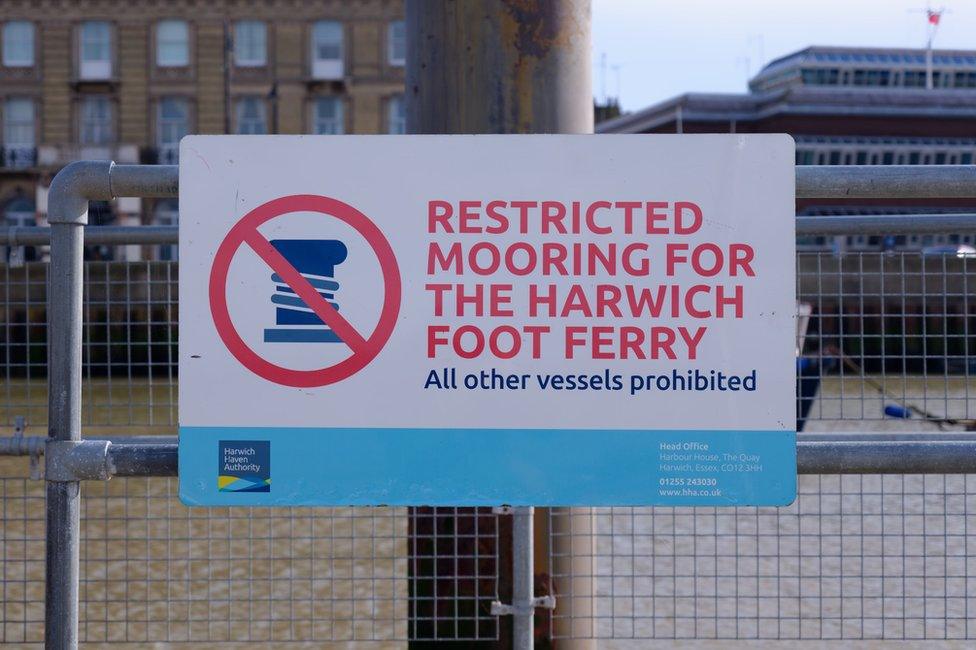
Might foot ferries one day follow in the footsteps of vinyl records and become "cool"? Mr Zemann thinks it is possible
So what is the future for ferries like Mr Zemann's?
"There's an endless [list of] ferries which have closed," he says.
And yet there is something "old school" about foot ferries, he says, like vinyl records or artisanal goods that might just be in their favour.
Being on the water, he says, gives people a completely different and memorable experience of a place - the type of "cool" mentioned by teacher Mr Hunt.
"I really think these things will come back again," Mr Zemann says. "But I think with a bit of clever marketing loads more ferries could work.
"I don't think it has to be the end."

Follow East of England news on Facebook, external, Instagram, external and X, external. Got a story? Email eastofenglandnews@bbc.co.uk , externalor WhatsApp 0800 169 1830
Related topics
- Published10 January 2024
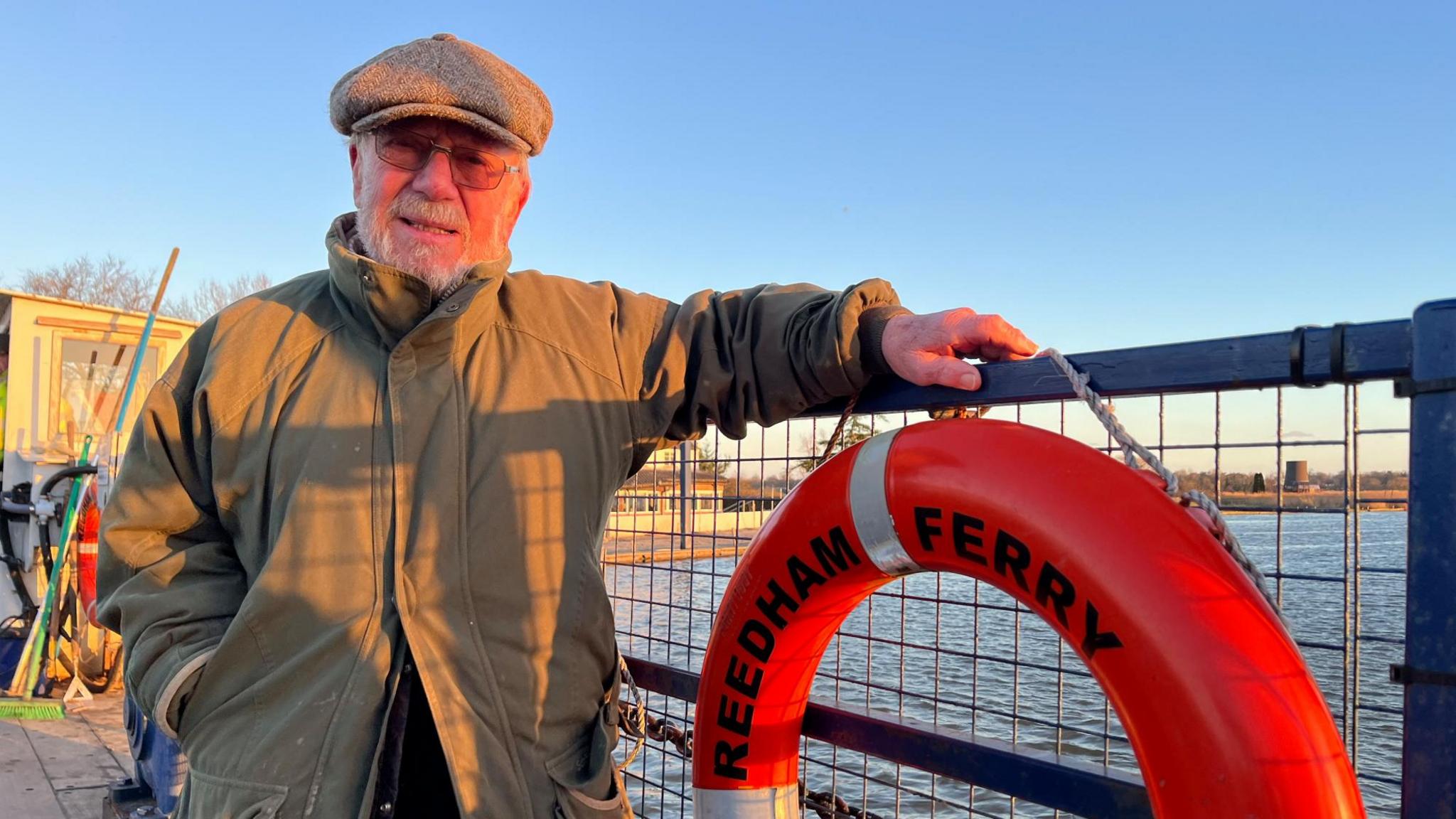
- Published7 September 2023
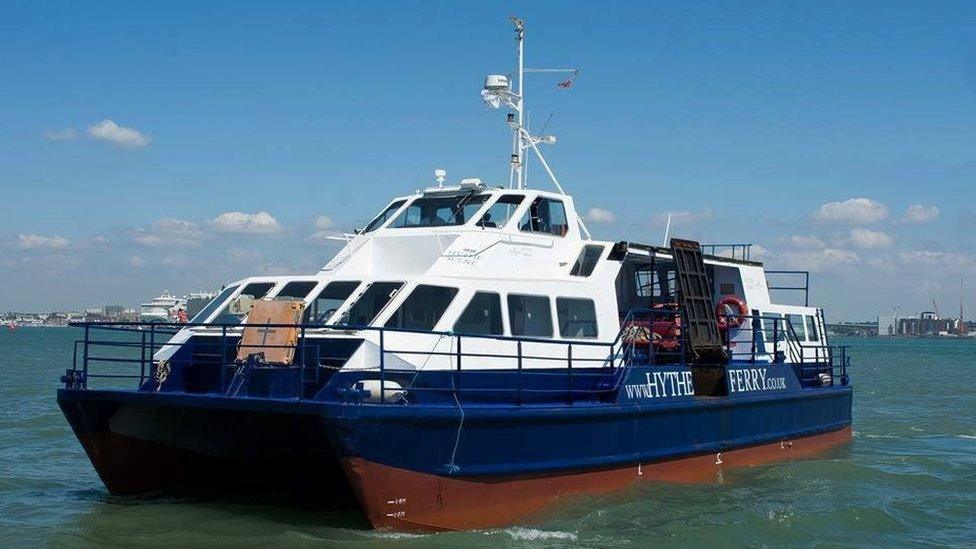
- Published26 March 2021
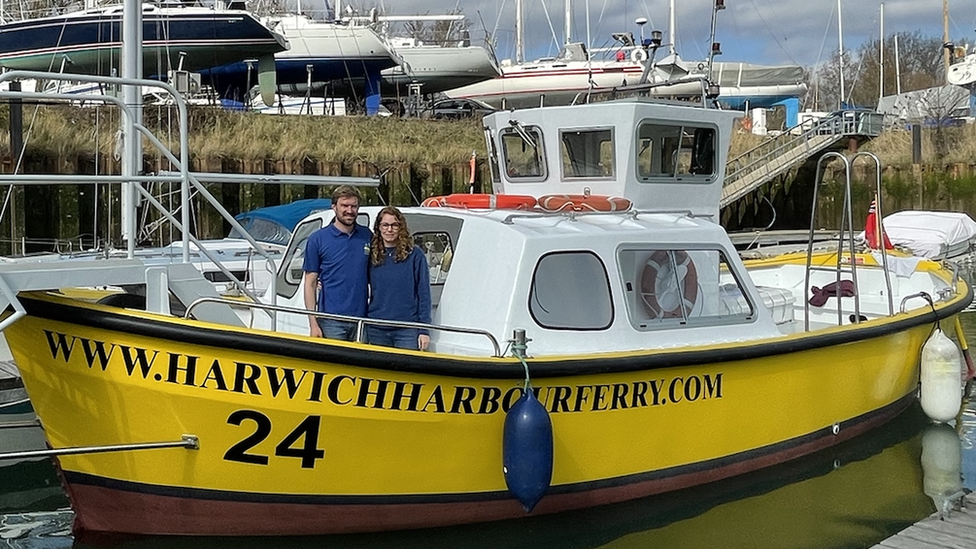
- Published5 October 2020
